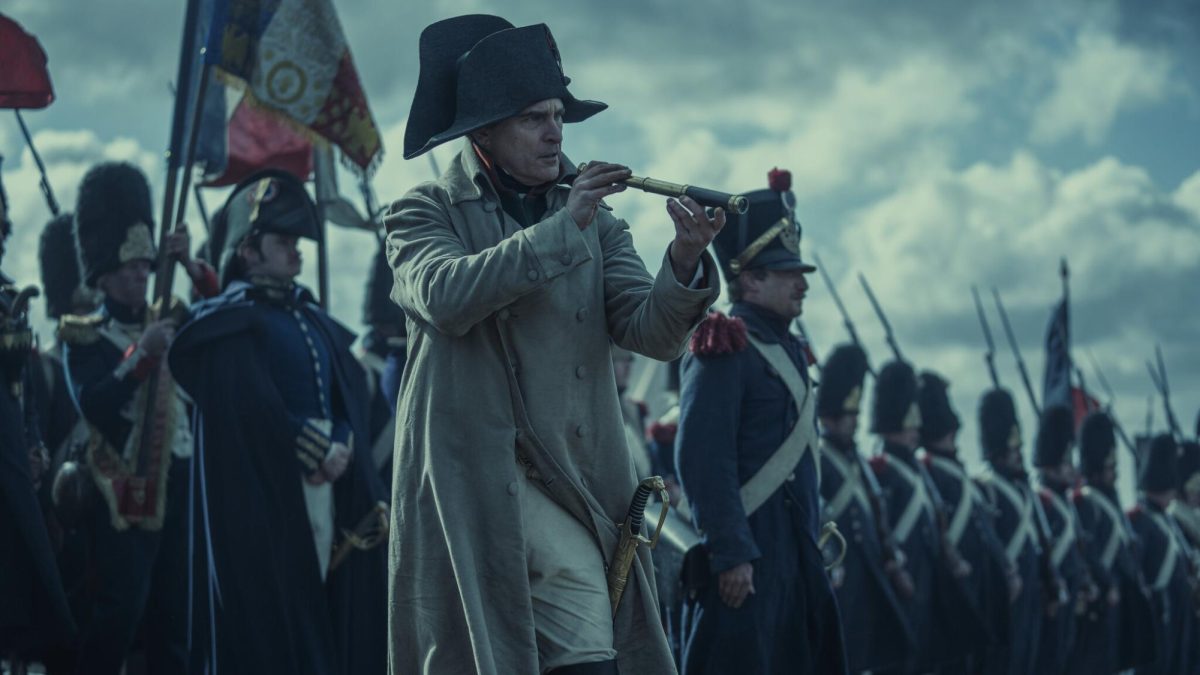The film “Napoleon” oversimplifies the history of the Napoleonic Wars. It really felt like a movie and not a history lesson, which was good for some scenes. The battle scenes were glorious, especially since there aren’t many war films set in the 1800s. Ridley Scott has previously worked on historical drama “Gladiator”, which is set for a sequel in 2024. Given the complexity of the story, he made due with what he had. Many of the scenes with coalitions were very confusing and it felt like the dialogue, especially pertaining to conversations between two people, didn’t feel realistic or historically accurate. Having no French accents made it feel like an anglicized version of the story. The film starred Joaquin Phoenix and Vanessa Kirby, in which both actors played phenomenal roles. However, I felt like there could have been more emotionally displayed.
It left me a little disappointed. Although most of the film felt accurate, the ending tried its best to explain the real impact Bonaparte had but it failed to make any sense. Many French critics tore the film apart with one even saying “This film is like spitting in the face of French people because it feels like Ridley Scott ridiculed both Napoleon and the history of France,” another french historian Patrice Gueniffey told Le Point magazine that Scott “clearly doesn’t like Napoleon. We are treated to a caricature of an ambitious Corsican ogre, a sullen boor, who is also disgusting with his wife, Josephine,” Gueniffey also took issue with the statistics at the end of the film claiming that Napoleon was in fact responsible for approximately three million deaths.
Overall, “Napoleon” isn’t at all a masterpiece. It doesn’t do any justice to the French people, and it doesn’t depict Bonaparte in the positive way we all would have liked to see. Not only that, it didn’t make as much sense as the OverSimplified videos on the Napoleonic wars on YouTube, which I spent all night watching to understand (even after watching the film). View it as you like, but Ridley Scott’s “Napoleon” tells us a war action version of Bonaparte’s tale, not a historic one.




